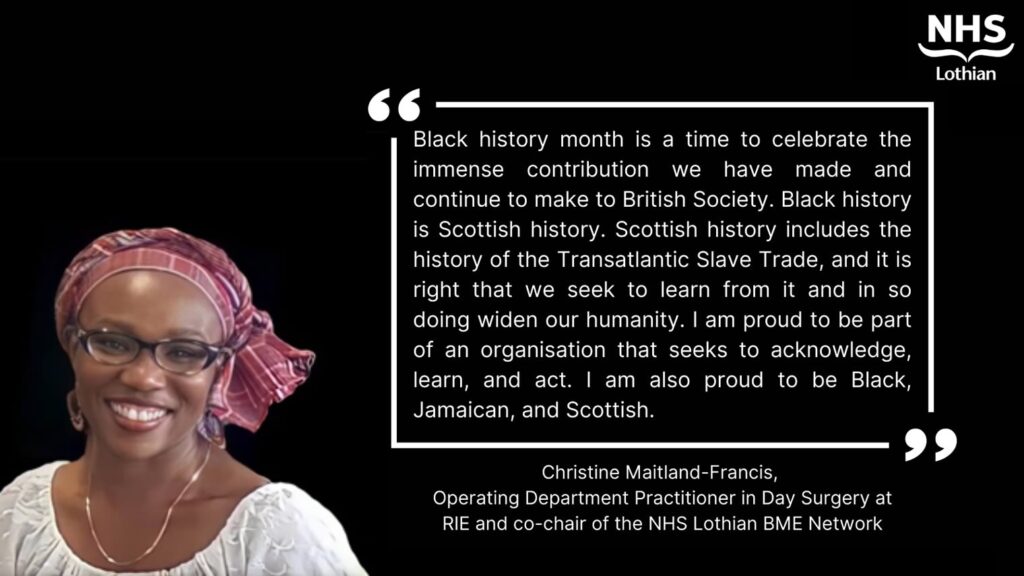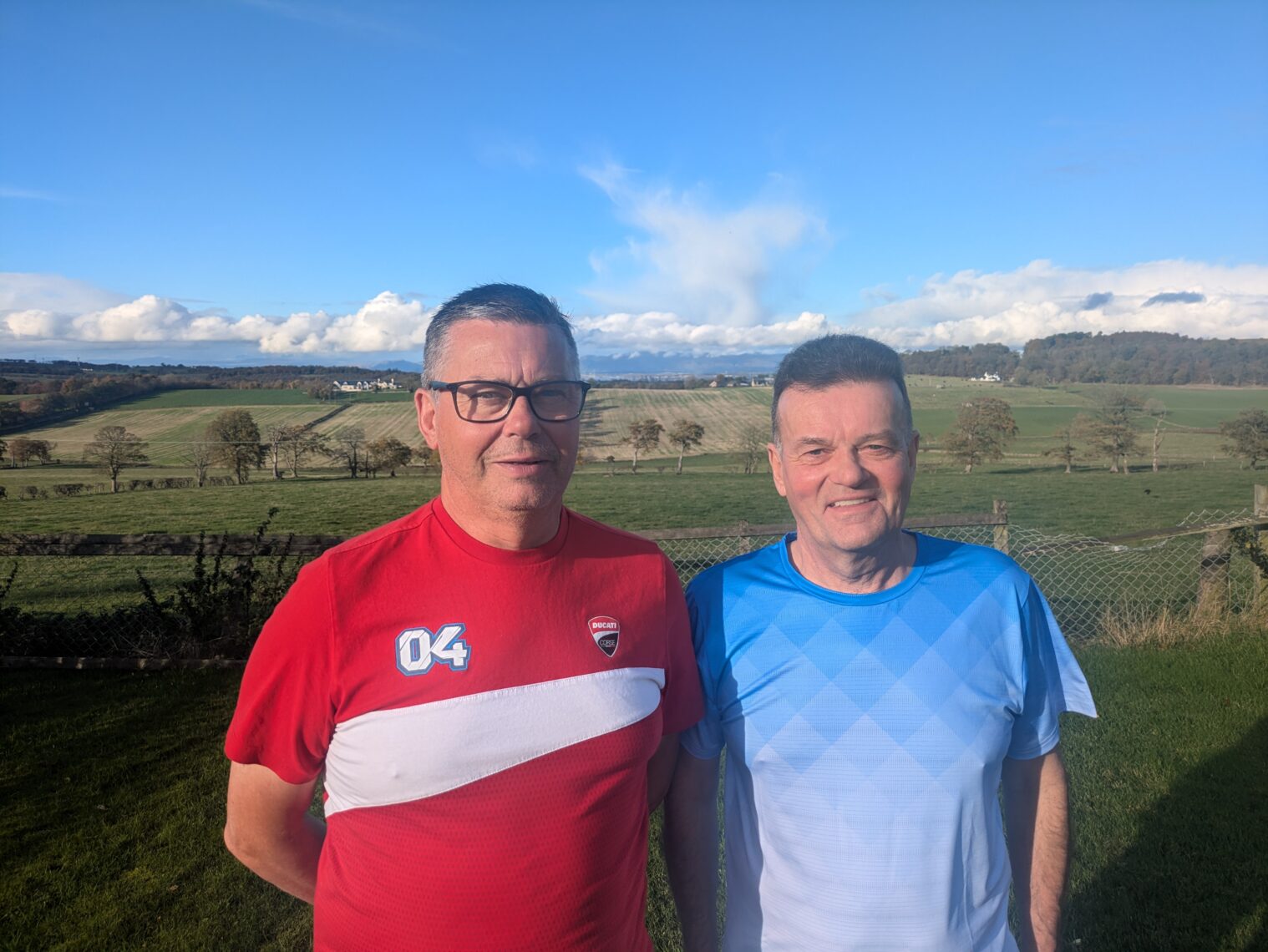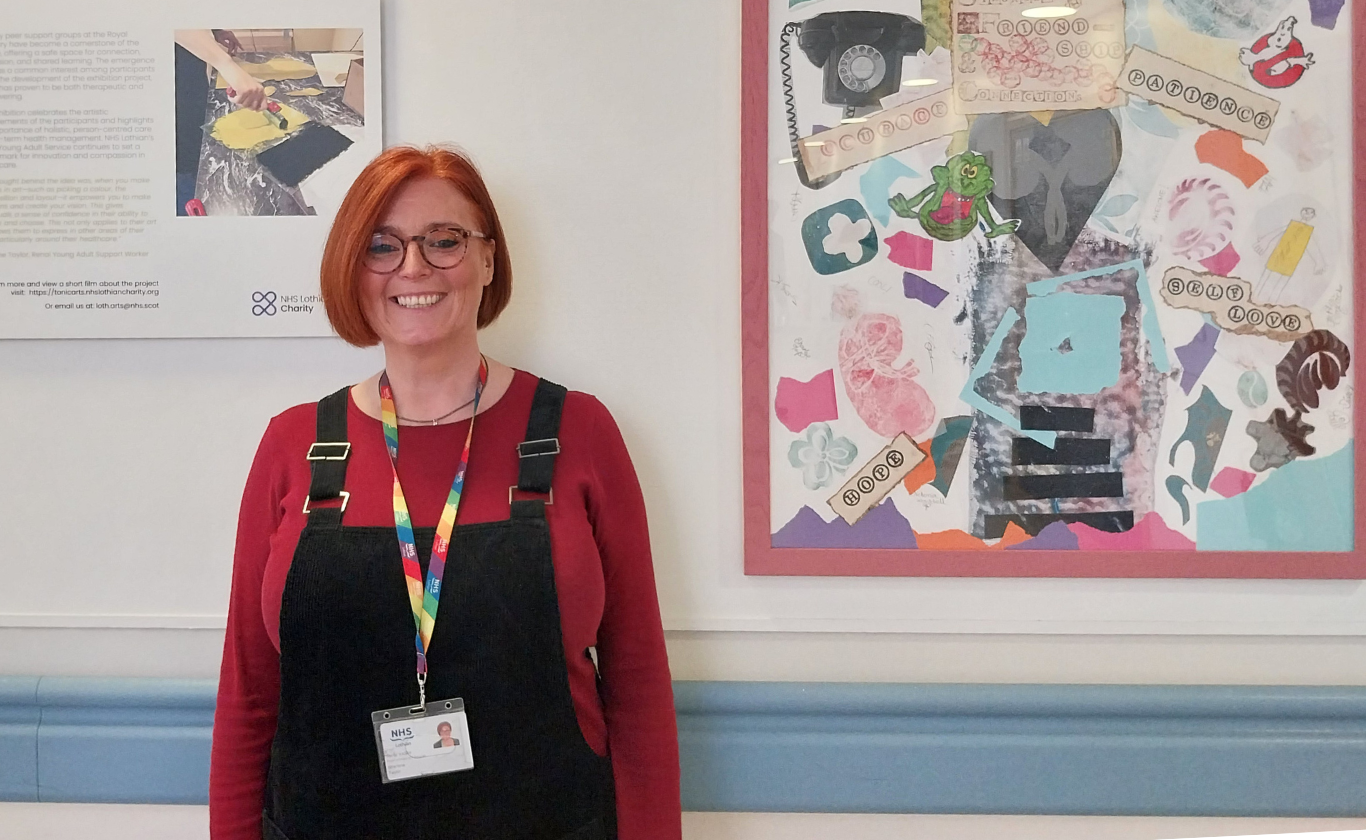Christine Maitland-Francis is an Operating Department Practitioner in Day Surgery at the Royal Infirmary. She is also a co-chair of the NHS Lothian BME Staff Network, co-chair of the NHS Lothian historical links with Transatlantic Slave Trade Advisory Group and a Unison Steward. As part of Black History Month, Christine shared this blog.
28 September 2021 may have been just a typical Scottish autumn day – grey, cold and damp! However, this day held particular significance for me for two reasons. Firstly, it marked 20 years of my life in Scotland. A journey that started with my coming here from Jamaica with my husband as a post graduate student for only one year, somehow led to a place where I am comfortable to call Scotland home. Secondly, it was an important milestone in NHS Lothian’s journey to acknowledge and learn more about its historical links with the Transatlantic Slave Trade, as we held the inaugural meeting of the NHS Lothian consultative advisory group for the Transatlantic Slave Trade research project. This project was borne out of the immense global interest in Black lives that arose last year as we witnessed the differential impact of COVID-19 on Black and ethnic minorities in the UK along with the shocking murder of George Floyd. The NHS Lothian BME Staff Network rightly sought a response from our organisation.
A recruitment process is due to commence for a researcher for six months employed by Edinburgh University and funded by Edinburgh and Lothians Health Foundation, to review health service archival evidence and compile a documented history of philanthropic links, initially focussing on the Royal Infirmary of Edinburgh. The consultative advisory group, of which I am co-chair, includes representatives from staff, patient and community groups, Edinburgh University and the leadership of NHS Lothian and Edinburgh and Lothians Health Foundation. Its role is to oversee the research, including assessing the findings to determine an appropriate response and make recommendations to the NHS Lothian Board.
The Transatlantic Slave Trade was the greatest forced movement of humans in history and resulted in approximately 10 million West Africans being enslaved by Europeans with an equal number perishing during their capture and transportation[1]. What was wrongly deemed acceptable by many then now defies our enlightened understanding. That said, today we enjoy, to varying degrees, the benefits of the immense wealth and opportunities generated from that era which has helped create the modern society we live in whilst the negative consequences from the stereotypes, racism and prejudice that were embraced and used to justify slavery during the period continue to persist.
Sadly, the Scottish public are largely unfamiliar with this aspect of our shared history. Though most will be appalled at the thought of it, many more are unaware of the extensive involvement of Scots in British slavery, and some choose historical amnesia[2].
Slavery is not an easy topic for white or Black people. However, we cannot disregard historical truth. To do this would be an insult to my enslaved ancestors who fought and died for freedom. Many islands in the Caribbean such as Jamaica had Scottish slave owners and overseers. The Scottish legacy of the slave trade can be evidenced from the fact that I, like many Jamaicans, have a Scottish surname and both countries share similar flags.
Black history month is a time to celebrate the immense contribution we have made and continue to make to British Society. Black history is Scottish history. Scottish history includes the history of the Transatlantic Slave Trade, and it is right that we seek to learn from it and in so doing widen our humanity. I am proud to be part of an organisation that seeks to acknowledge, learn, and act. I am also proud to be Black, Jamaican, and Scottish.
[1] Scotland and the Slave Trade 2007, Bicentenary of the Abolition of the Slave Trade Act, Scottish Executive
[2] Palmer, G., 2007. The Enlightenment Abolished, Citizens of Britishness
You can read the joint statement from NHS Lothian and the Edinburgh and Lothians Health Foundation on the Atlantic Slave Trade here.























